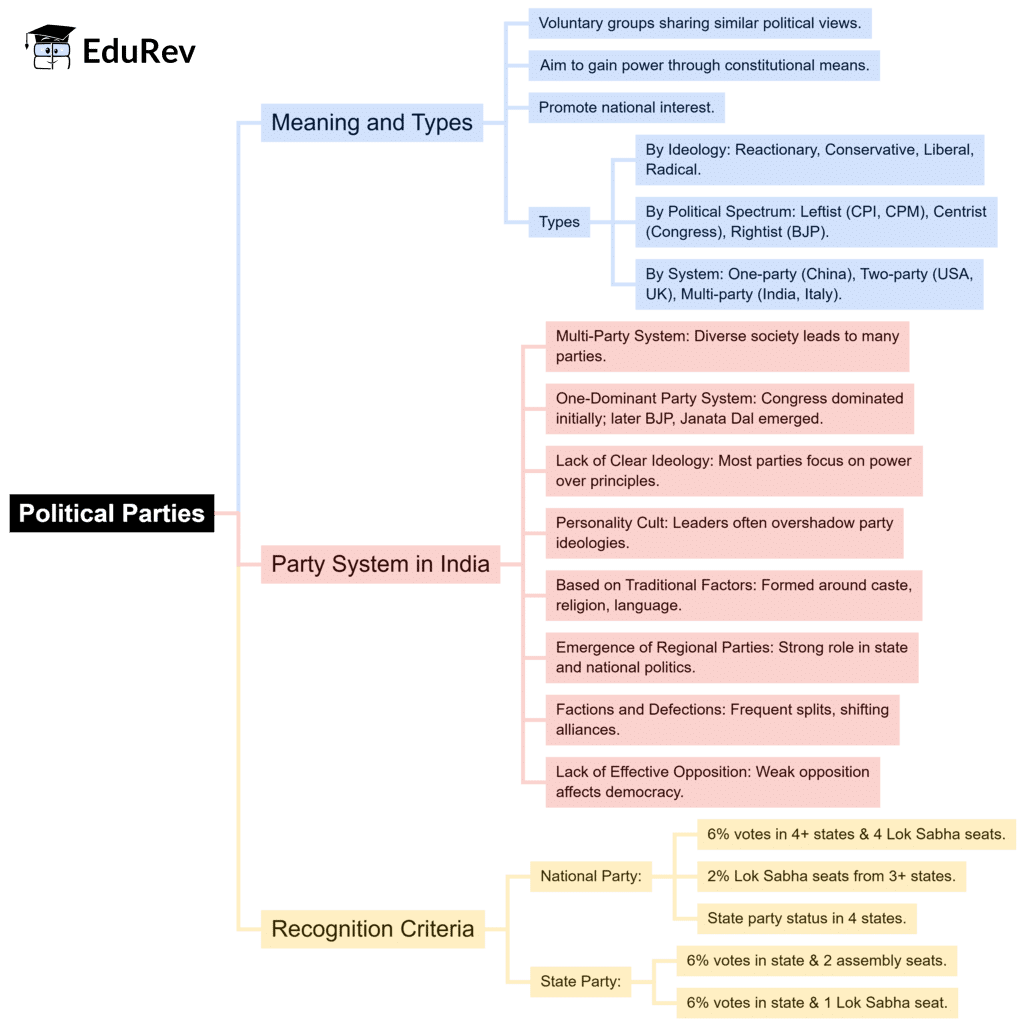UPSC Exam > UPSC Notes > Indian Polity for UPSC CSE > Mind Map: Political Parties
Mind Map: Political Parties | Indian Polity for UPSC CSE PDF Download

The document Mind Map: Political Parties | Indian Polity for UPSC CSE is a part of the UPSC Course Indian Polity for UPSC CSE.
All you need of UPSC at this link: UPSC
|
162 videos|999 docs|260 tests
|
FAQs on Mind Map: Political Parties - Indian Polity for UPSC CSE
| 1. What are the main functions of political parties in India? |  |
Ans. Political parties in India serve several essential functions, including representing various sections of society, formulating policies, contesting elections, and forming the government. They play a crucial role in mobilizing public opinion, providing a platform for political participation, and ensuring accountability in governance.
| 2. How are political parties classified in India? |  |
Ans. Political parties in India can be classified into three main categories: national parties, state parties, and regional parties. National parties operate across multiple states and have a significant presence in national politics, while state parties primarily function within a specific state. Regional parties focus on local issues and often represent regional interests.
| 3. What is the significance of political party registration in India? |  |
Ans. The registration of political parties in India is significant as it ensures legal recognition, enabling them to contest elections and access various benefits provided by the Election Commission. Registered parties can also receive funds from the government and have the right to participate in the electoral process, enhancing democratic participation.
| 4. What challenges do political parties face in India today? |  |
Ans. Political parties in India face several challenges, including corruption, internal factionalism, lack of transparency, and the influence of money in politics. Additionally, they struggle with maintaining a connection with the grassroots level, ensuring effective governance, and addressing the diverse needs of the electorate.
| 5. How do political parties contribute to the democratic process in India? |  |
Ans. Political parties contribute to the democratic process in India by facilitating political participation, representing diverse interests, and providing a framework for political competition. They help in shaping public policy and governance through elections, debates, and legislative processes, thus ensuring that the government remains accountable to the people.
Related Searches
















